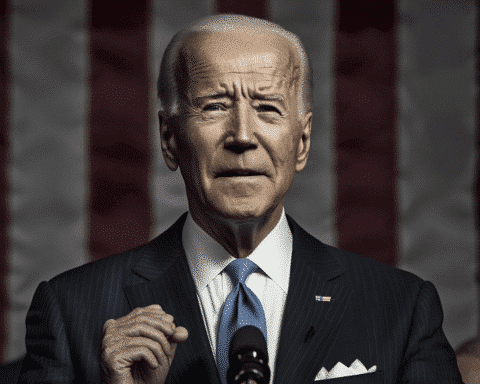Speaker Mike Johnson, leading the House Republicans, recently encountered significant resistance within his party regarding the spending deal he negotiated with Democrats. Despite his efforts to rally support, several GOP members, including prominent figures like Reps. Warren Davidson and Bob Good have openly expressed their dissatisfaction. This scenario highlights the ongoing internal struggles within the Republican Party, reflecting broader challenges in U.S. politics.
Speaker Johnson’s initiative, aimed at bridging bipartisan gaps, revealed deep fractures within the GOP. Rep. Warren Davidson’s abrupt exit from a critical meeting, dismissing Johnson’s approach as “drivel,” underscored the growing discontent. He criticized Johnson for lacking proactive strategies, marking a significant rift in party unity.
The situation escalated when 13 Republicans, including members of the influential House Freedom Caucus chaired by Rep. Bob Good, opposed a procedural vote on GOP-led bills. This move mirrored a similar revolt in June, which disrupted House operations. Rep. Good articulated the group’s stance, deeming the spending agreement “unacceptable” and signalling a call for action against perceived compromises.
Despite this turmoil, Johnson maintains a base of support. Many Republicans recognize his challenges with a narrow majority and a Democrat-controlled Senate and White House. However, parallels drawn to the ousting of former Speaker Kevin McCarthy signal potential vulnerabilities in Johnson’s leadership.
Rep. Chip Roy’s ambiguous remarks on Fox News and Rep. Tim Burchett’s admission of internal discussions about Johnson’s potential removal further complicate the Speaker’s position. Rep. Steve Womack’s comments after the GOP meeting, describing the situation as “the same ol’ song and dance,” reflect a sentiment of ongoing dissatisfaction despite new leadership.
Nevertheless, Johnson remains undeterred, emphasizing his conservative roots and framing the spending deal as a step towards “fiscal sanity.” He believes effective governance under his leadership could strengthen the GOP’s position in future Congress sessions.
The situation surrounding Speaker Mike Johnson epitomizes the delicate balancing act required in today’s polarized political landscape. While some members express confidence in his leadership, others remain skeptical, questioning the efficacy of the spending deal and Johnson’s overall strategy. The outcome of this internal conflict within the GOP could have significant implications for U.S. political dynamics, especially with looming government funding deadlines and ongoing negotiations over federal spending.




